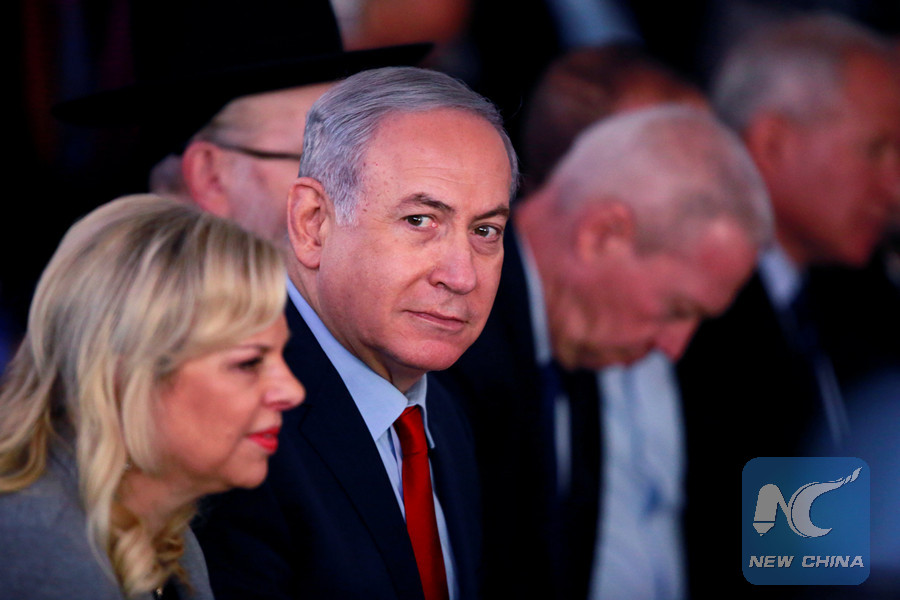
Israeli Prime Minister Benjamin Netanyahu and his wife Sara attend an inauguration ceremony for a fortified emergency room at the Barzilai Medical Center in Ashkelon, southern Israel, February 20, 2018. (Reuters photo)
JERUSALEM, March 2 (Xinhua) -- The Israeli Prime Minister Benjamin Netanyahu and his wife on Friday were questioned separately by police investigators in the corruption affair of Bezeq, Israeli largest telecom company.
Netanyahu was questioned at the official residence in Jerusalem under caution for five hours in the Bezeq affair, also known as Case 4000, while his wife Sara Netanyahu gave testimony at the offices of the police's Lahav 433 anti-corruption unit in Lod, Israeli media reported.
However, police said in a statement, after the question was concluded, that the prime minister and his wife "were questioned for a number of hours as part of an investigation by police unit, Lahav 433 and the Israeli Securities Authority."
"The investigation is being carried out with the supervision of the State Attorney & approval of the Attorney General," added the statement, "There are no further details or information on the ongoing investigations."
Media reported that also on Friday, police brought in suspects Shaul Elovitch, chief shareholder of Bezeq, and Nir Hefetz, Netanyahu's confidant and former media adviser, for another round of questioning in the case, and also interrogated a former senior official at the Communications Ministry.
The Bezeq case is also known as Case 4000. Elovitch is suspected of being part of a bribery deal, in which Bezeq received regulatory and financial benefits from the Communication Ministry, which Netanyahu headed between 2014 and 2017 in addition to his capacity as prime minister.
In return, Walla, a news site controlled by Elovitch, allegedly refrained from criticizing Netanyahu and gave him and his wife, Sara Netanyahu, positive coverage.
Channel 10 news reported on Thursday that investigators are in possession of correspondence between Sara Netanyahu and Elovitch's wife that appear to implicate the prime minister's wife in the burgeoning scandal.
However, Netanyahu denies any wrongdoing and charges the allegations are part of a witch-hunt by the media and "the left."
Last month, Israeli police recommended that the prime minister be indicted for a series of serious corruption charges including bribery, fraud, and breach of trust in two other cases, "case 1000" and "case 2000."
In "case 1000," Netanyahu and his family received expensive cigars, champagne, and jewelry in a sum amounting to about one million shekels (about 282,800 dollars) from the Israeli businessman and Hollywood tycoon between 2007 and 2016.
In "case 2000," Netanyahu allegedly received bribes from Arnon Mozes, the publisher of Yedioth Aharonoth, one of Israel's largest newspapers. According to the police, Netanyahu and Mozes held talks over an "exchange deal," in which Netanyahu would receive favorable coverage in Yediot Aharonot in return for promoting a law and other measures that would limit the distribution of Israel Hayom, Yedioth's main rival.

